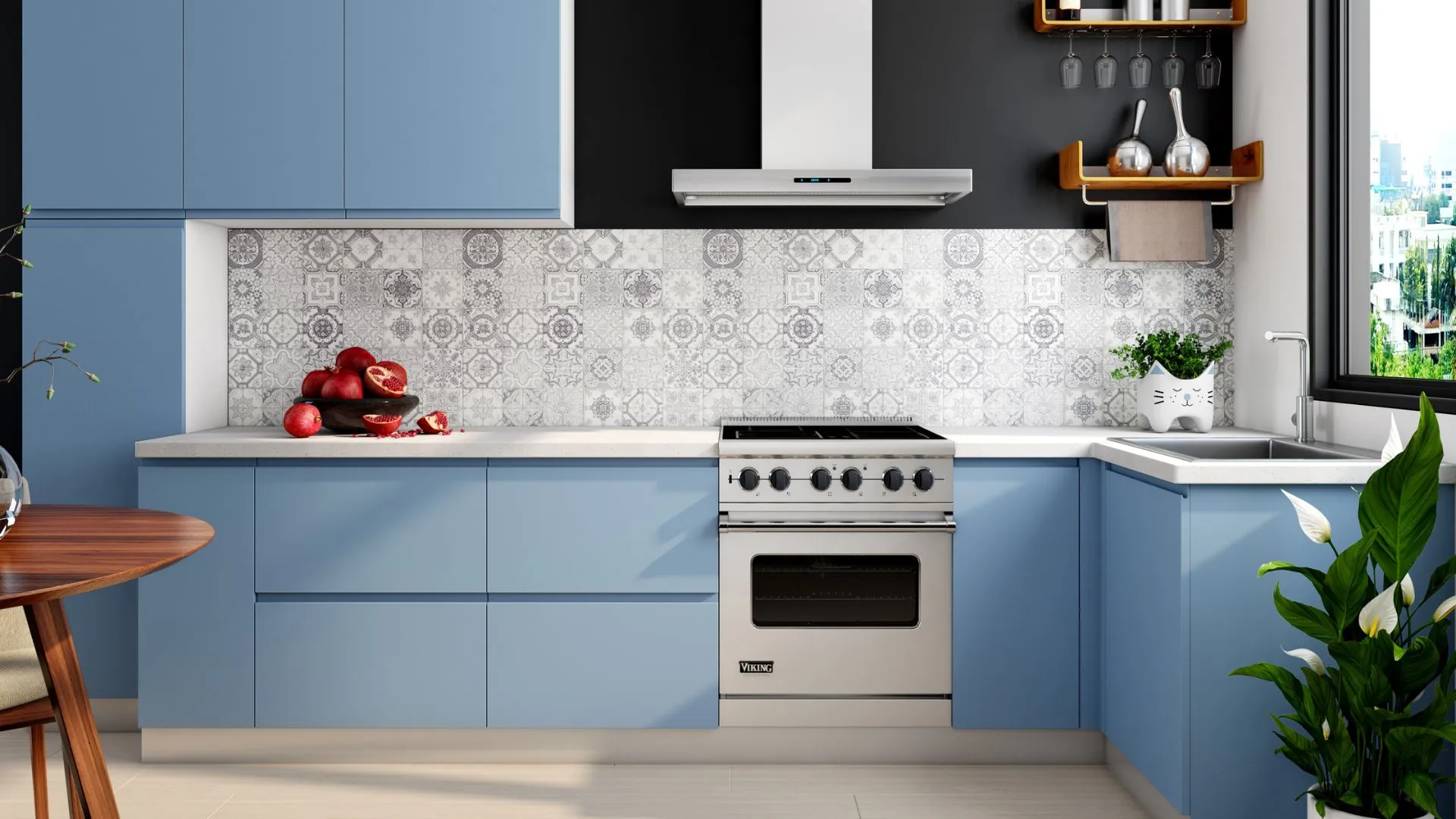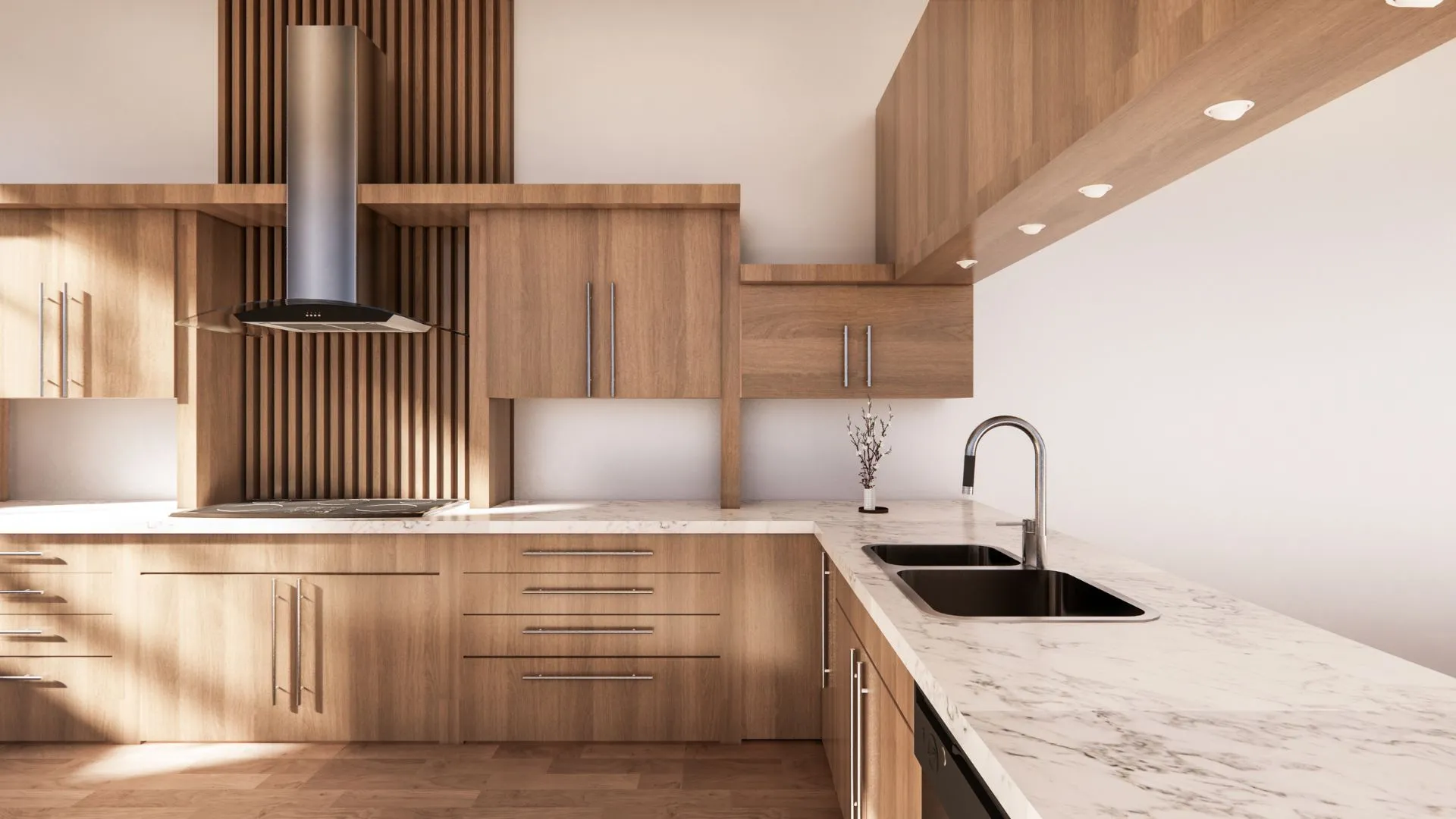Picking the perfect kitchen design is a big deal when you’re renovating or building a home. Modular and civil kitchens are the main types you’ll come across. They both have their own features, advantages, and disadvantages. In this article, we’ll break down the variances between a modular kitchen and a civil kitchen so you can choose wisely for your place.
Introduction
The kitchen is often considered the heart of the home. It’s a space where meals are prepared, family gatherings occur, and memories are made. With the increasing emphasis on functionality and aesthetics in home design, the type of kitchen you choose can greatly impact your daily life. The two primary kitchen designs you’ll encounter are modular kitchens and civil kitchens. While they may serve the same basic purpose, their design, construction, and overall experience can be quite different. Let’s dive into the details of what sets these two types of kitchens apart.
Understanding Modular Kitchens
What Is A Modular Kitchen?

A modular kitchen is a contemporary and very flexible kitchen style made up of ready-made cabinet parts or modules. These parts are built in factories and then put together on-site based on the unique layout and needs of your kitchen space. This method offers a lot of flexibility, letting you select from various designs, finishes, and setups to match your requirements and tastes.
Benefits of Modular Kitchens
- Customization and Flexibility: Customizing your kitchen with modular options is a breeze. You have a wide selection of colors, materials, and finishes to complement your home’s style. These modules are flexible, making it simple to rearrange or swap them out for quick and hassle-free updates.
- Efficient Space Utilization: The design of a modular kitchen is focused on maximizing space efficiency. Every module is crafted to utilize available space optimally, ensuring that no corner is wasted.
- Quick Installation: Since the modules are pre-fabricated, the installation process is relatively quick compared to traditional kitchens. This can significantly reduce the inconvenience caused during kitchen renovations.
- Modern Aesthetics: Modular kitchens are known for their sleek, contemporary look. They often feature clean lines, high-quality finishes, and integrated appliances, giving your kitchen a polished and stylish appearance.
Drawbacks of Modular Kitchens
- Cost: The customization and high-quality materials used in modular kitchens can make them more expensive than traditional civil kitchens.
- Maintenance: Some modular kitchen materials may require more maintenance to keep them looking new and functioning well over time.
Understanding Civil Kitchens
What Is A Civil Kitchen?

A civil kitchen, often referred to as a traditional kitchen, is built on-site using materials like wood, concrete, and bricks. This type of kitchen construction involves a more hands-on approach, where the design and structure are created from scratch according to the homeowner’s specifications. Civil kitchens are typically built by local contractors and craftsmen.
Benefits of Civil Kitchens
- Durability and Strength: Civil kitchens are known for their robust construction. The use of solid materials like wood and concrete can result in a long-lasting and sturdy kitchen.
- Cost-Effective: Generally, civil kitchens can be more cost-effective than modular kitchens, especially if local materials and labor are used.
- Customization: While modular kitchens offer customization in terms of design and layout, civil kitchens allow for a high degree of structural customization. You can design every aspect of your kitchen, from the countertops to the cabinetry, to fit your exact needs.
Drawbacks of Civil Kitchens
- Time-Consuming: Building a civil kitchen can be a lengthy process. Since everything is constructed on-site, it requires more time and effort compared to assembling pre-fabricated modules.
- Inconsistent Quality: The quality of a civil kitchen heavily depends on the skills of the contractors and craftsmen. This can lead to inconsistencies in the finish and functionality of the kitchen.
- Limited Modern Aesthetics: While civil kitchens can be customized, achieving the sleek and contemporary look of a modular kitchen can be challenging.
Key Differences Between Modular and Civil Kitchens
Installation Process
The installation process is one of the most significant differences between modular and civil kitchens. Modular kitchens are assembled from pre-fabricated modules, making the process faster and less labor-intensive. In contrast, civil kitchens are built from scratch on-site, requiring more time and effort.
Customization and Design Flexibility
Both types of kitchens offer customization, but the extent and nature of customization differ. Modular kitchens provide a wide range of design options and the flexibility to reconfigure or update the kitchen easily. Civil kitchens, on the other hand, offer structural customization but may lack the flexibility and modern design options of modular kitchens.
Cost Considerations
The cost of a modular kitchen can be higher due to the quality of materials and the precision of factory manufacturing. However, the speed and efficiency of installation can offset some of these costs. Civil kitchens can be more economical, particularly when local materials and labor are used, but the extended construction time and potential for inconsistent quality should be considered.
Maintenance and Durability
Modular kitchens require maintenance to preserve their modern finishes and functionality. Civil kitchens, with their robust construction, may require less frequent maintenance but can be more challenging to repair or update.
Conclusion
In conclusion, the choice between a modular kitchen and a civil kitchen depends on various factors, including your budget, design preferences, and the amount of time you can dedicate to the construction process. Modular kitchens offer modern aesthetics, quick installation, and high customization, making them ideal for those seeking a contemporary look with flexibility. Civil kitchens, with their durable construction and cost-effectiveness, are suitable for those who prefer a more traditional approach and have the time for a custom build.
We hope this comparison helps you make an informed decision about your kitchen design. Have you recently renovated your kitchen or are you planning to? Share your thoughts and experiences in the comments below!